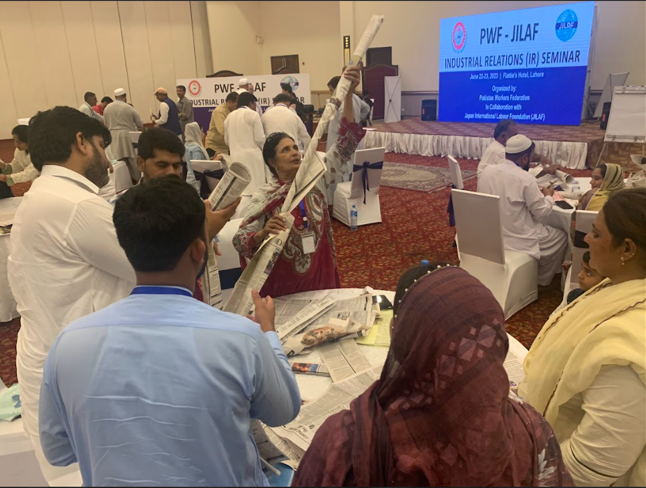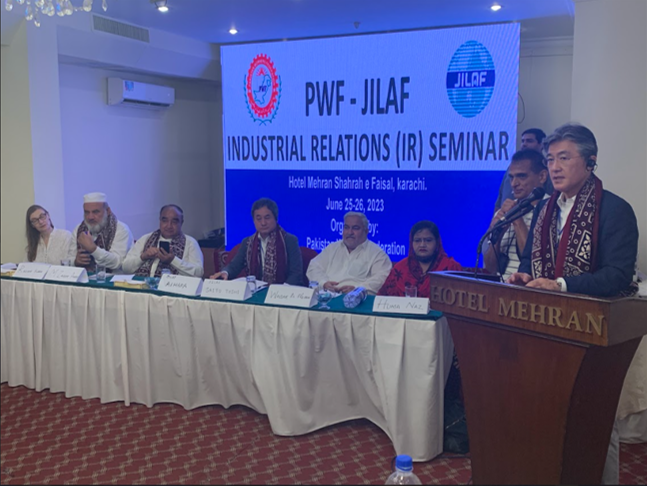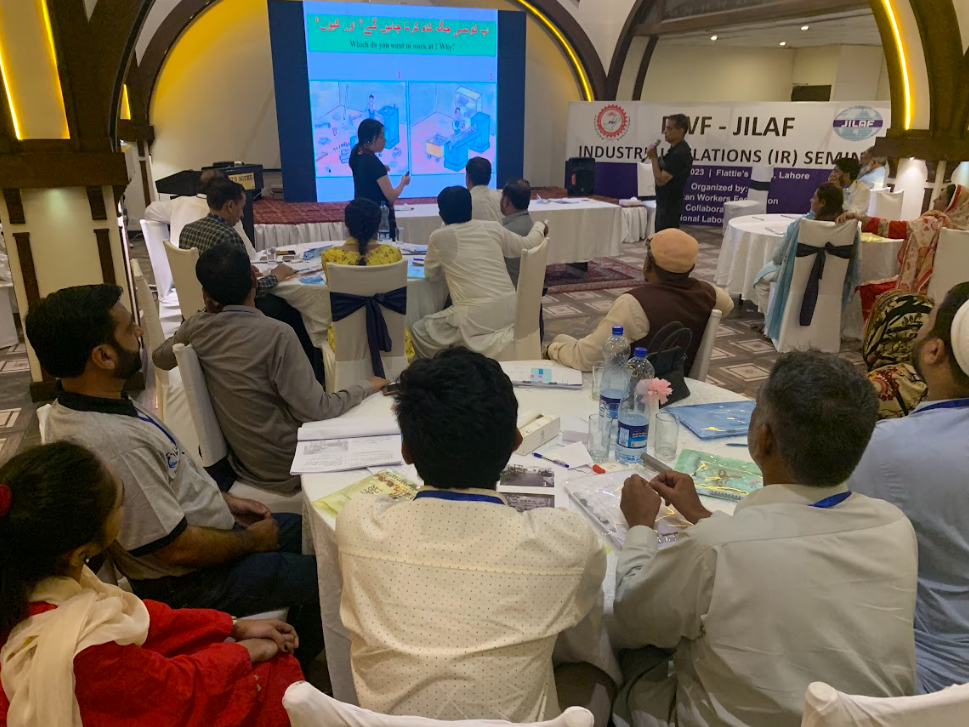PWF/JILAF Seminars on Industrial Relations in Pakistan
The Japan International Labour Foundation (JILAF), together with the Pakistan Workers Federation (PWF), held industrial relations seminars in Lahore, Pakistan on June 22 and 23, and in Karachi on June 25 and 26. The seminar was attended by seventy-three people, including the leaders of trade unions nationwide.
At the opening of the industrial relations seminar, on behalf of the JILAF, President Aihara congratulated the new officers elected at the PWF regular general assembly, remarking, “Creating happiness for working people is a sentiment shared between the PWF and JILAF. Let’s work together with economic organizations, the ILO, and other organizations to create a better society.”
From the PWF, General Secretary Waqar Memon cited a recent case of a serious industrial accident that occurred in Pakistan and asserted, “Although there is a growing need to improve the workplace environment, there is very little interest from management. I hope that this program will be introduced and lead to building labor-management dialogue.” Furthermore, at the opening in Lahore, General Secretary Laxman Basnet (former Nepal NTUC president) of the South Asian Regional Trade Union Council (SARTUC) also attended, adding that the same program implemented in Nepal was also effective for organizing and that he had high expectations for this program.
Secretary General Saito at the seminar in Karachi and Program Manager Kato at the seminar in Lahore each outlined “The History and Role of Japan’s Labor Movement,” speaking on (1) the situation surrounding Japanese labor unions, (2) the history and role of Japan’s labor movement—the path to building constructive labor-management relations, and (3) contemporary issues in Japan, which was followed by participants talking about labor union involvement in politics, how to register unions, how to select labor policy deliberation committee members, and prompting questions about efforts to improve the ratio of women.
Regarding the technical sessions of both seminars, Occupational Safety and Health Expert Miwako Nagasu facilitated an immersive dialogue-driven session with participants: (1) to introduce the immersive approach program, (2) checklist practice, (3) occupational safety and health management systems, (4) transportation and storage of objects, (5) changing workstations, (6) workplace environment, (7) welfare benefits and teamwork/environmental protection, (8) how to propose improvements to management, and (9) business and human rights.
The participants were mainly composed of younger union activists with gender balance taken into consideration, and while some participants had low levels of education in such areas as reading and writing, thanks to trainers from the past workplace environment improvement program “POSITIVE” voluntarily supporting the younger union activists, the group discussions and presentations in each technical session were carried out smoothly.
Past trainers voiced such opinions as, “Severe accidents are occurring frequently, especially at mining sites, so we would like to focus on re-educating trainers and training younger trainers,” and, “We are currently using an old action checklist for mines, but the machinery used on site and the work environment have changed significantly, so we need to update the manuals and so forth.”
Lastly, at the closing, PWF General Secretary Waqar reflected on the two-day seminars held in Lahore and Karachi with, “I once again felt the effectiveness of the workplace environment improvement program. Many of our trainers have already passed away, so we would like to re-educate trainers, mainly the younger ones. We would like to ask for JILAF’s continued cooperation in the future, especially since developing manuals requires specialized knowledge.” In response, President Aihara concluded by saying, “Looking at the performance of the participants at the seminar, I am convinced of the necessity to implement a program to improve the workplace environment and that the Pakistan labor movement has a bright future. We hope to continue supporting you next year to meet these expectations.”



